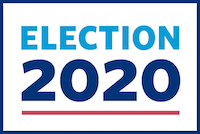How should the next president get the economy back on track?
 Photo/Getty Images
Photo/Getty ImagesIn the run-up to the presidential election, BrandeisNOW asked faculty to provide analysis and insight into some of the most pressing issues facing the country. This is part of the series.

There is no trade off between containing COVID-19 and economic recovery. Until we restore public health, and people are confident that they can interact without risking infection, there will be no recovery.
The federal government can and should play a central role in the task ahead.
The president should instruct everyone in the administration to provide timely and reliable information on the spread of the virus, treatments that are available (including vaccines), and on the effectiveness of non-pharmaceutical interventions.
Until there is a vaccine, this means promoting safe behavior — masks, social distancing, frequent handwashing and forgoing events with large groups.
This includes organizing and providing widespread, frequent testing as well as providing contact tracing when positive tests arise.
In addition, the federal government should coordinate the production and distribution of personal protective equipment, easing supply shortages and directing scarce resources to where they are most needed.
Finally, since viruses know no borders, the president needs to be a leader in promoting international cooperation and coordination of the efforts to fight the pandemic.
Beyond public health issues, everything else is secondary to the recovery. That said, I will list four areas where the actions of the next president can help to improve short- and medium-term growth prospects.
- 1. Because of the pandemic, millions of businesses of all sizes are struggling. Those that are viable will need debt restructuring; those that aren’t viable will need to be shut down. Doing this quickly and efficiently requires expanding the capacity of the bankruptcy process beyond large firms and introducing a low-cost restructuring procedure for small firms.
2. The next president should return to a policy of increased open trade through multilateral negotiation. - 3. The United States is a country built by immigrants. For the country to thrive we need to restore legal immigration to pre-Trump administration levels while expanding the availability of visas for highly-trained workers and students.
4. The next president should take advantage of the pandemic to reduce carbon emissions. Price methods are always the most efficient, creating the right incentives by setting the price to meet the quantity targets. We need a carbon tax that is sufficiently high to quickly push the country to meet the commitments of the 2015 Paris Agreement on climate.
Stephen G. Cecchetti is the Rosen Family Chair in International Finance at the Brandeis International Business School
Categories:





